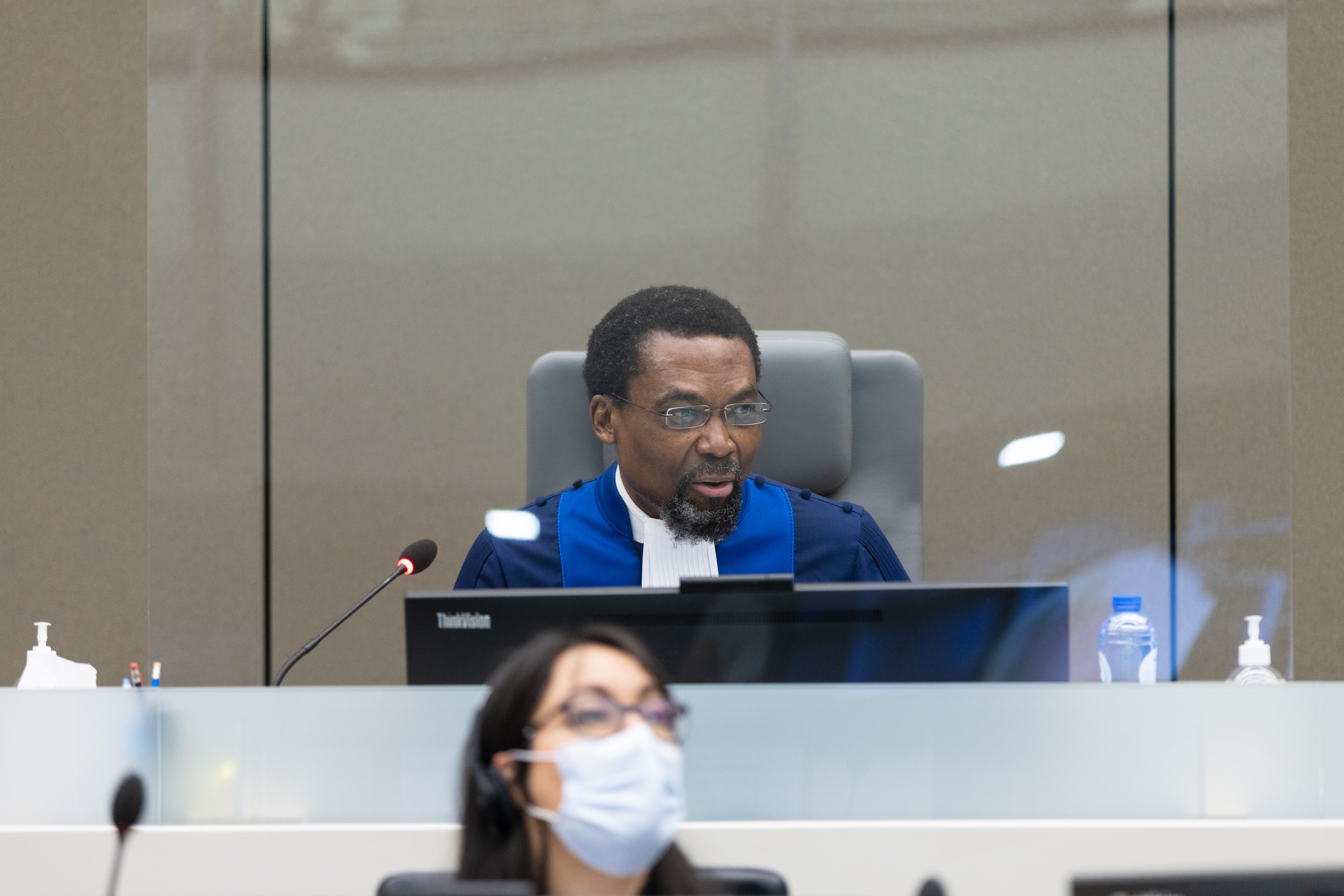ICC Appeals Chamber confirms Trial Chamber I’s decision acquitting Laurent Gbagbo and Charles Blé Goudé of all charges of crime against humanity

Today, 31 March 2021, the Appeals Chamber of the International Criminal Court ("ICC" or "Court") delivered its judgment on the Prosecutor's appeal against Trial Chamber I's decision of 15 January 2019, which had acquitted, by majority, Mr Gbagbo and Mr Blé Goudé of all charges of crime against humanity allegedly committed in Côte d'Ivoire in 2010 and 2011. The Appeals Chamber confirmed, by majority, Judge Ibáñez and Judge Bossa dissenting, the decision of the Trial Chamber.
The acquittal of Mr Gbagbo and Mr Blé Goudé is now final. The Appeals Chamber also revoked all conditions on the release of Mr Gbagbo and Mr Blé Goudé and directed the ICC Registrar to make arrangements for the safe transfer of Mr Gbagbo and Mr Blé Goudé to a receiving State or States.
At today's hearing, Judge Chile Eboe-Osuji, Presiding Judge in this appeal, read a summary of the judgment in open court in the presence of Mr Gbagbo and Mr Blé Goudé. Due to the COVID-19 restrictions, the judgment was delivered on a partially virtual basis, with participation either from the seat of the Court, or from separate locations outside the Court.
In its judgment, the Appeals Chamber rejected, by majority, the Prosecutor's two grounds of appeal, namely that the Trial Chamber's decision to acquit Mr Gbagbo and Mr Blé Goudé (i) had violated statutory requirements and (ii) was taken without properly articulating and consistently applying a clearly defined standard of proof and its approach to assessing the sufficiency of the evidence. The Appeals Chamber found inter alia that, whilst trial chambers should ideally deliver both the verdict and reasons concurrently, a delay between the issuance of a verdict and its reasons cannot necessarily invalidate an entire trial process. There may, on the contrary, be clear justification for such separation in the particular circumstances of a case; most obviously in this regard is when the liberty of an acquitted defendant is at stake. The Appeals Chamber also rejected the argument that the two judges of the Trial Chamber who had formed the majority had failed to articulate and consistently apply the standard of proof. The Appeals Chamber noted in this regard that both judges had found that the evidence against the two accused had been 'exceptionally weak'.

The Appeals Chamber's judgment was taken by majority, Judge Ibáñez and Judge Bossa dissenting. Judge Eboe-Osuji appended a separate concurring opinion on various aspects of the appeal. Judge Morrison and Judge Hofmański also each appended separate concurring opinions on a specific issue.
Judge Ibáñez and Judge Bossa appended dissenting opinions, in which they explained in detail why they disagree with the decision of the Appeals Chamber to confirm the Trial Chamber's decision on acquittal. They are of the view that the Trial Chamber's decision was materially affected by serious errors and therefore would have granted the Prosecutor's appeal and ordered a new trial of Mr Gbagbo and Mr Blé Goudé.
Dissenting Opinion of Judge Solomy Balungi Bossa on Grounds One and Two
Summary of the judgment read in Court:
English;
French
Summary of Dissenting Opinion of Judge Luz del Carmen Ibáñez Carranza: English;
French;
Spanish
Questions and Answers on the Appeals judgment: English; French
Audio-visual materials:
Full hearing:
- YouTube (for viewing): English; French
- Video (MPEG-4) for viewing and download: English; French
- Audio (MPEG-3) for download: English; French
Background: The trial in this case began on 28 January 2016. On 15 January 2019, Trial Chamber I, by majority, acquitted Mr Laurent Gbagbo and Mr Charles Blé Goudé from all charges of crimes against humanity allegedly committed in Côte d'Ivoire in 2010 and 2011. On 1 February 2019, the Appeals Chamber set conditions to be imposed on Mr Gbagbo and Mr Blé Goudé upon their release to a State willing to accept them on its territory and willing and able to enforce the conditions set by the Chamber. Mr Gbagbo and Mr Blé Goudé are not in the ICC detention centre anymore following their release with conditions.
On 16 July 2019, Trial Chamber I filed the written full reasons for the acquittal of Mr Laurent Gbagbo and Mr Charles Blé Goudé. On 16 September 2019, the Prosecutor filed a notice of appeal against this decision. From 22 to 24 June 2020, the Appeals Chamber held hearings to hear the observations of Parties and Participants on the Prosecutor's appeal against the acquittal decision.
For further information on this case, please click here.
For further information, please contact Fadi El Abdallah, Spokesperson and Head of Public Affairs Unit, International Criminal Court, by telephone at: +31 (0)70 515-9152 or +31 (0)6 46448938 or by e-mail at: [email protected]
You can also follow the Court's activities on Twitter, Facebook, Tumblr, YouTube, Instagram and Flickr